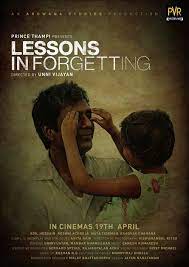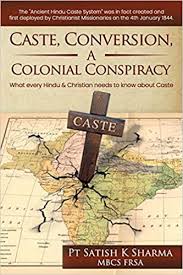VOL- 6, ISSUE- 2, PUNE RESEARCH WORLD (ISSN 2455-359X) JIF 3.02
6.2 WORLD
Area of Article : ALL

VOL- 6, ISSUE- 2, PUNE RESEARCH WORLD (ISSN 2455-359X) JIF 3.02
6.2 WORLD

VOL- 6, ISSUE- 2, PUNE RESEARCH WORLD (ISSN 2455-359X) JIF 3.02
6.2.1 WORLD

The production of the gendered spaces is a hierarchical and oppositional
system in the realms of public space of male domination over the private space
of female subordination. The male gender is always considered as a superior
than the female gender. Women always fight to get the proper place in society
but male gender always dominates them to show their supremacy. Space and gender
are interrelated to each other as both the phenomenon has connected with the
power relations. The relation between masculine space and feminine space create
the contradiction in both public and private realms that touches the gender
concerns. It is considered that gender is the synonym for sex, as it identifies
the different contradictory sexes i.e. man and woman. But according to the
varied perspectives of the gender, it is quite different and dissimilar to the
concept of the sex because sex refers to the biological realities of the two
opposite genders-male and female and gender refers to the socially constructed
phenomenon. The biological reality and socio-cultural perspective of the
masculinity and femininity create the ambivalence in two opposite sexes. The
present paper attempts to analyze the construction of space and gender issues
in Anita Nair’s The Lessons in Forgetting.
Keywords: Space, Gender, Feminine Space, Masculine Space,
Male Domination
VOL- 6, ISSUE- 2, PUNE RESEARCH WORLD (ISSN 2455-359X) JIF 3.02
6.2.2 WORLD

The death and the
dying process was a topic that was not discussed openly in public. However,
with the debates about the act of allowing a patient to die legally, has
widened the scope of many disciplines like legal, medical, psychological and
philosophical bracing the ethical values to a wider population of society.
Patients that suffer with a terminal disease are left to deal with their
emotional, psychological and clinical struggles on their own. As a terminally
ill patient faces death every moment the fear of not knowing the time and place
of their death is so profound that some of them would request to be assisted to
die rather than going through the dying process each day.
Keywords: mortality, physician, euthanasia, perspective, existence, experience
VOL- 6, ISSUE- 2, PUNE RESEARCH WORLD (ISSN 2455-359X) JIF 3.02
6.2.3 WORLD

What will tomorrow’s business scenario and what needs to be successful?
This is a critical question, all the organization face today. To answer this
question, an organization needs efficient leaders. Development of good leaders
is a continuous process and includes mentoring, training, education and
experiences. To survive in the 21st century, we are going to need a new
generation of leaders—leaders, not managers. Research on leadership indicates
that 50-75% of organizations are currently managed by people sorely lacking in
leadership competence. They are hired or promoted based on technical
competence, business knowledge and politics not on leadership skill. Before
explaining in detail about leadership, it is worthwhile to know whether it is a
skill or a talent. If it is a talent, then leadership is an inborn quality as
talents are innate. If it is a skill, then it can acquired by voracious
reading, learning, continuous practice, training and experience. If it is a
talent, then the leaders and if it is a skill then the leaders are made. Leadership
is more action rather than preaching. It is the ability to lead from the front
with a passion and with a conviction of a great vision, despite many successive
setbacks. It is also taking a sense of responsibility, setting as a role model
with qualities like courage, commitment and conviction. Leadership is also a
way of calling ‘we’ not ‘I’ because no leader is successful as an individual.
Whenever there is a success story, the leader ascribes it to his team and in
case of failure, he owns the sole responsibility. Good leaders always talk of
positive things and make positive statements like ‘you can do it’, ‘it is
possible’, ‘you will achieve big’ and so on. And they never make negative
remarks like ‘it is impossible’, ‘it is doubtful’, ‘you can never improve’,
etc. If your actions inspire others to dream more, learn more, do more and
become more, you are a leader. - John Quincy Adam
Key Words: Leadership management, Management practices & Leadership Practices
VOL- 6, ISSUE- 2, PUNE RESEARCH WORLD (ISSN 2455-359X) JIF 3.02
6.2.4 WORLD

Multi-stored buildings constructed for the purpose of residential,
commercial, industrial etc., with an open ground stored is becoming a common
feature. For the purpose of parking, usually the ground stored is kept free
without any constructions, except the columns which transfer the building
weight to the ground. For a hotel or commercial
building, where the lower floors contain banquet halls, conference rooms,
lobbies, show rooms or parking areas, large interrupted space is required for
the movement of people or vehicles. Closely spaced columns based on the layout
of upper floors are not desirable in the lower floors of such buildings. For
this purpose, floating column concept has come into existence. The floating
column is a vertical member which rest on a beam and doesn't have a foundation.
The floating column act as a point load on the beam and this beam transfers the
load to the columns below it. But such column cannot be implemented easily to
construct practically since the true columns below the termination level are
not constructed with care and hence finally cause to failure.
VOL- 6, ISSUE- 2, PUNE RESEARCH WORLD (ISSN 2455-359X) JIF 3.02
6.2.5 WORLD

South and west were home to Christian traditions early on: the Syrian
Christians of Kerala trace their origin to 1 A.D. and historians agree that
there was a Christian community in Kerala at this time. Though these Christians
maintained links with Chaldea or Persia, the community remained relatively
isolated from Western Christianity at least until the sixteenth century -
Keralam Christianity was linked to west Asia, not Western Europe. Next came
Catholic influence, with Catholicism in Goa being four hundred years old. It
was only at the end of the eighteenth century, however, that the north
witnessed a significant growth in Christian missionary activities, although a
few efforts predated that period and there were small groups of converts here
and there. The mid-eighteenth century conversions to Catholicism in Bettiah,
where the local ruler patronised the mission, is an interesting case (Sahay,
1986). In the northeast, where Protestantism dominates, Christianity is largely
the product of nineteenth and twentieth century conversions. Thus while
Christianity is often associated with British rule and the process of
westernisation, it is clear from the discussion above that its appearance in
India preceded the British by several hundred years. Indeed, one might say that
Christianity in India is as old as the faith itself. Clearly Christianity has
come to India from different parts of the world, at different historical
moments and out of different impulses. It is crucial to 5 Christian Communities
of India: A Social and Historical Overview Rowena Robinson differentiate
between the British and pre-British periods and within both of these there are
further distinctions – these are outlined above and will be discussed in
slightly more detail below. As noted, the earliest known Christian community is
that of the Syrian Christians.
VOL- 6, ISSUE- 2, PUNE RESEARCH WORLD (ISSN 2455-359X) JIF 3.02
6.2.6 WORLD

The name "Dalit Christian" is more recent; However, the
identity of Dalits as Christians is as old as Christianity in India. Although
Christianity originated abroad, it has it roots in India. It is believed that
St. Thomas came to Kerala in the 6th century and some Brahmin families in South
India converted to Christianity. These converts were known as Syrian
Christians. In 400 AD, Christian missionaries succeeded in converting many
Hindus to Christianity. For the untouchables, deprived of every social right
and human dignity in Hindu society, Christianity allowed them to emerge from
the mire of untouchability and achieve a caste-free society. In the following
years, many Dalit communities like Chahura of Punjab, Chamar of Uttar Pradesh,
Wankar of Gujarat, Mahar of Maharashtra, Parairs of Tamil Nadu and Pulye of
Kerala became Christians. Sobin George says in his article that the Christian
population in Punjab increased after conversion 3912 in 1881 up to 3,95,629 in
1931. (George,7)
Key Words: - untouchables, social right and human dignity,
Hindu society, Christianity
VOL- 6, ISSUE- 2, PUNE RESEARCH WORLD (ISSN 2455-359X) JIF 3.02
6.2.7 WORLD

This research paper centers on the works of Toni Morrison (also known as
Chloe Antony Wofford) in general and Gender Study in particular. Toni Morison’s
writing include: Sula, Song of
Solomon, Bluest Eye, Beloved and Tar Baby. Her writing deals with the themes of
feminism, gender identity, racism, violence, oppression, lust, desire,
sacrifice and sexism. Gender identity
and slavery were the peak and dominant issues of the past and still haunts the
present like a shadow. The big issue of suppression in that culture is being
black human being. Whites or any man could not relinquish the racist
opportunity or the gender rights. The conflict between the black and the white
societies, the violence and bloodshed between the black societies have been
presented nowhere so
effectively in the entire American fiction. Morrison having been born and brought up in
the North, a free state where neither slavery nor racism flourished in its full
form was left untouched with the truth of racial segregation. When Morrison
came to the South for higher education was a surprise to see separate water
fountains for blacks and whites; separation of seats in buses and trains by
using bars. Though all her
works are suffered with
violence, Morrison has portrayed the violence through her novels in a very unique way.
Keywords: gender, race, sexism, lust, violence,
oppression, community, culture, feminism etc.